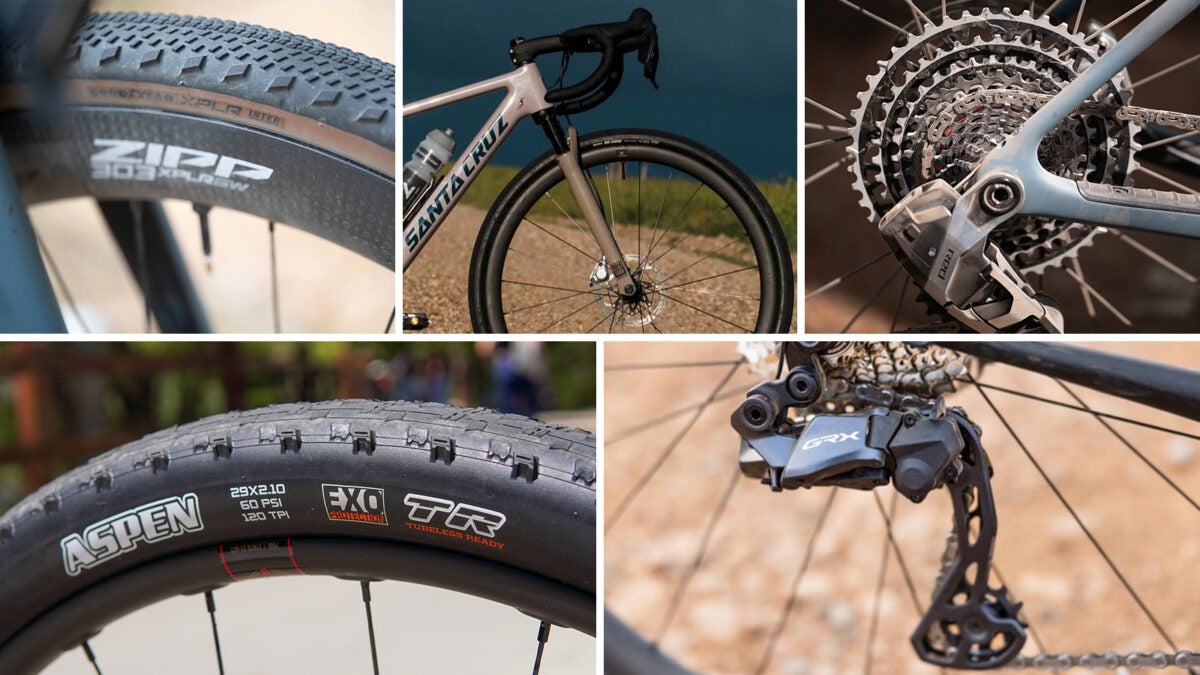“], “filter”: { “nextExceptions”: “img, blockquote, div”, “nextContainsExceptions”: “img, blockquote, a.btn, a.o-button”} }”>
What better way to preview 2025 than to ask Velo’s editorial team for their predictions, hot-takes, and wild and weird theories for the season to come?
This story focuses on gravel bike trends for 2025. These trend predictions come from attending a range of shows over the year, talking with industry members, and following what we’re seeing at gravel events.
See all of the Velo Predictions for 2025 here.
More 1x electronic drivetrains from Shimano, SRAM, and Campagnolo are coming
This one is a bit of low-hanging fruit, isn’t it?
Last year, we predicted that Shimano would drop an electronic Di2 version of its GRX gravel groupset. So far, we’re most of the way correct, as Shimano released a two-by version of GRX Di2 earlier this year.
Conspicuously missing, however, has been a 1x Shimano GRX Di2 12s groupset. It looks like that missing gap seems to be right around the corner.
We predict a choice of 10-45T and 10-51T cassettes out back as well as two different rear derailleurs to match, just like the mechanical version of GRX. We also predict it will use the same Di2 wired battery in conjunction with wireless-compatible shift levers, just like GRX Di2.
Will there be wireless derailleurs? Doubtful, though we wouldn’t be surprised to see it for the next generation of Shimano Di2.
Similarly, we predict 13-speed XPLR gearing to make its way down from the well-received SRAM Red AXS XPLR group to SRAM Force AXS. That means a less-expensive version of the 10-46T cassette as well as a Force derailleur that takes advantage of the UDH system most new gravel bikes feature.
While we would love to see the new SRAM Red AXS levers make their way to Force, we predict the lever shape shared between Force, Rival, and Apex will continue for 2025.
As for Campagnolo? We predict the Italian component manufacturer will release a wireless electronic version of Ekar in 2025. It will use the same 13-speed derailleur, chain, cassettes, and crankset Ekar has currently. But the levers, brakes, and charge systems will pull from Super Record WRL. Fingers crossed that the price is right to get more folks into the Campagnolo ecosystem.
It’s going to be a great year for gravel bike tire sales
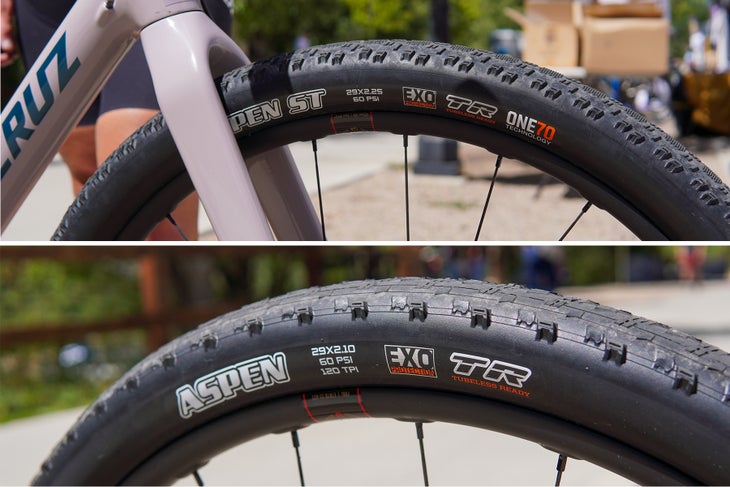
The pro gravel cyclists of the world (or, just some of them) really loved talking about how mountain bike tires are faster in just about every situation than gravel tires. And while bike friend groups around the world have discussed at length whether that new 50 mm wide tire fits their current gravel bike, 2025 is the year that the rubber meets the road. Or rather, the year the rubber meets the gravel.
We predict that many, many gravel cyclists are going to spend lots of time hopping online, double checking measurements, and almost certainly exceeding their frame’s max tire clearance. Unfortunately, we also predict some folks will go back to a narrower tire width after their experiment. It’s going to be a great year for buying gravel tires.
There’s nothing wrong with buying a wider gravel tire. In my own personal experiments with different bikes, however, I found that some bikes did better with wider tires than others. Some felt like their handling was best with around a 42 mm tire. Others started to feel more capable the wider we went. Others still, like the 3T Extrema, traded top-end speed on smooth terrain for extra grip and vibration damping.
The bottom line is that some bikes will feel good with a big MTB tire, while others will be at their best with a 40 mm tire. Some will learn this after spending a whole lot of money on new tires.
Your friends are gonna buy Chinese carbon frames in 2025
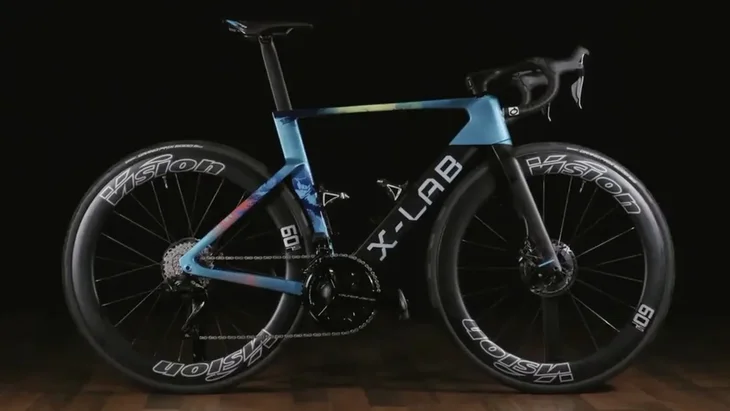
Okay, this is a bit facetious. It’s maybe a bit too personal too. But all of my friends who were into fixies 10 years ago and moved on to gravel bikes are going to really start asking about what Chinese carbon gravel bike frames to buy in 2025, and I bet your friends are going to start asking, too.
I suspect some of of this comes from two things: YouTube and WorldTour. A quick search on YouTube reveals all number of videos touting the value–or the big mistake–that makes bike these Chinese manufacturers intriguing. So many of the YouTube videos out there show some of these bikes as the antidote for evermore expensive legacy manufacturers. But ultimately this type of exposure will absolutely lead to cyclists wondering if they should build a Chinese bike brand for themselves.
The introduction of Chinese frame manufacturer XDS also brings some legitimacy to these non-Western bike manufacturers, though how much legitimacy it brings in the near term remains to be seen.
Either way, don’t be surprised if the group chat starts filling up with discussions about whether that unknown bike brand makes a frame with SRAM UDH and 700c x 50 mm tire clearance.
Expect more suspension on gravel bikes
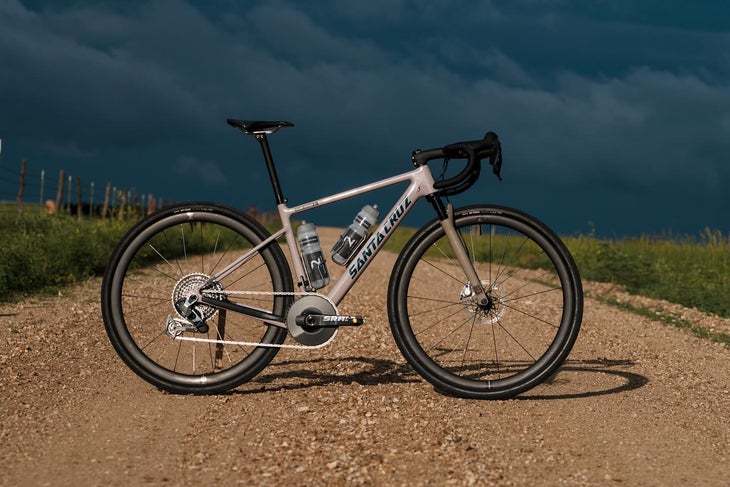
We predict more cyclists–both pros and nonpros alike–will opt more than ever for suspension on their gravel bikes.
Suspension is nothing new to gravel. Even going as far back as 2006, Ted King won Unbound using a Cannondale Slate, a 650b gravel bike with a Lefty suspension fork. Rockshox, Cane Creek, and Fox all have traditional suspension fork options. Lauf has its leaf-spring fork, while suspension stems from Redshift and USE Components all work to take the edge off the gravel roads we ride.
There are, of course, the weight and aero penalties that come with suspension forks. But for non-pros, their lower speeds mean that aero penalty matters less–and that comfort advantage matters more. But if aero really matters to you, Manitou’s patents indicate that we might see an aero-optimized gravel suspension fork soon enough.
While we don’t predict wholesale swap to gravel suspension across the field, we do expect to see a whole lot more gravel suspension. And with any luck, we’ll see more suspension on gravel race podiums in 2025.
More wide, aero-optimized gravel wheelsets
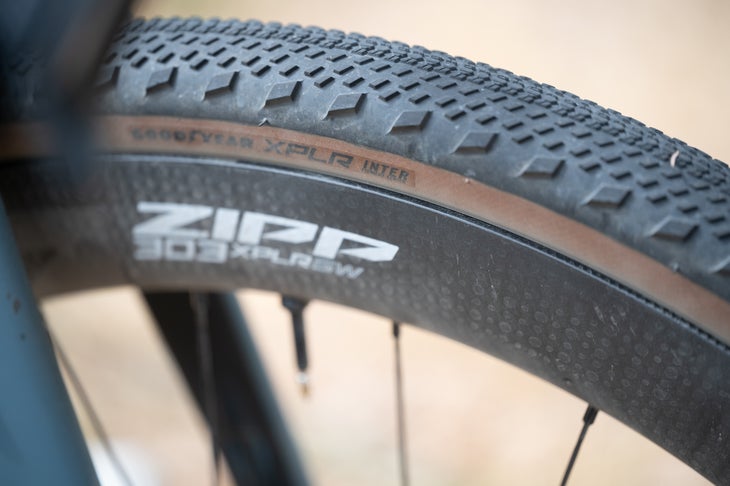
The Zipp 303 XPLR wheelset caused waves in 2024. It wasn’t because it tried to pair a deep gravel rim profile with a gravel tire. Rather, it’s because of the sheer size of the dang thing! The 54 mm rim depth is uncommon amongst gravel wheels, but the 32 mm internal rim width and 40 mm external width are real standouts in 2024.
In 2025, however? I predict we’ll see more extra-wide, extra aero-focused gravel wheels.
That means we’ll see more deep-section gravel wheels with 27 mm internal widths, going as far as the 32 mm internal rim width Zipp uses. Just as on a road bike, there are aero benefits to be had from an outer rim depth matching the profile of the gravel tire. Expect to see more gravel bike wheelsets with a 40 mm+ external rim width to boot.
I’m not sure this is the right decision for everyone, however. Zipp’s use of a 32 mm internal rim (with a 40 mm external width) blows past that ETRTO recommendation of roughly a 27 mm internal rim width with a 40 mm tire. There are just a few approved tire options that mate with these Zipp as a result, and that’s before accounting for how quickly that aero edge drops off with an even-wider tire.
Nonetheless, we expect other wheel companies to dip their feet into much wider, aero-optimized gravel wheels to mate with ever-widening gravel tires.

